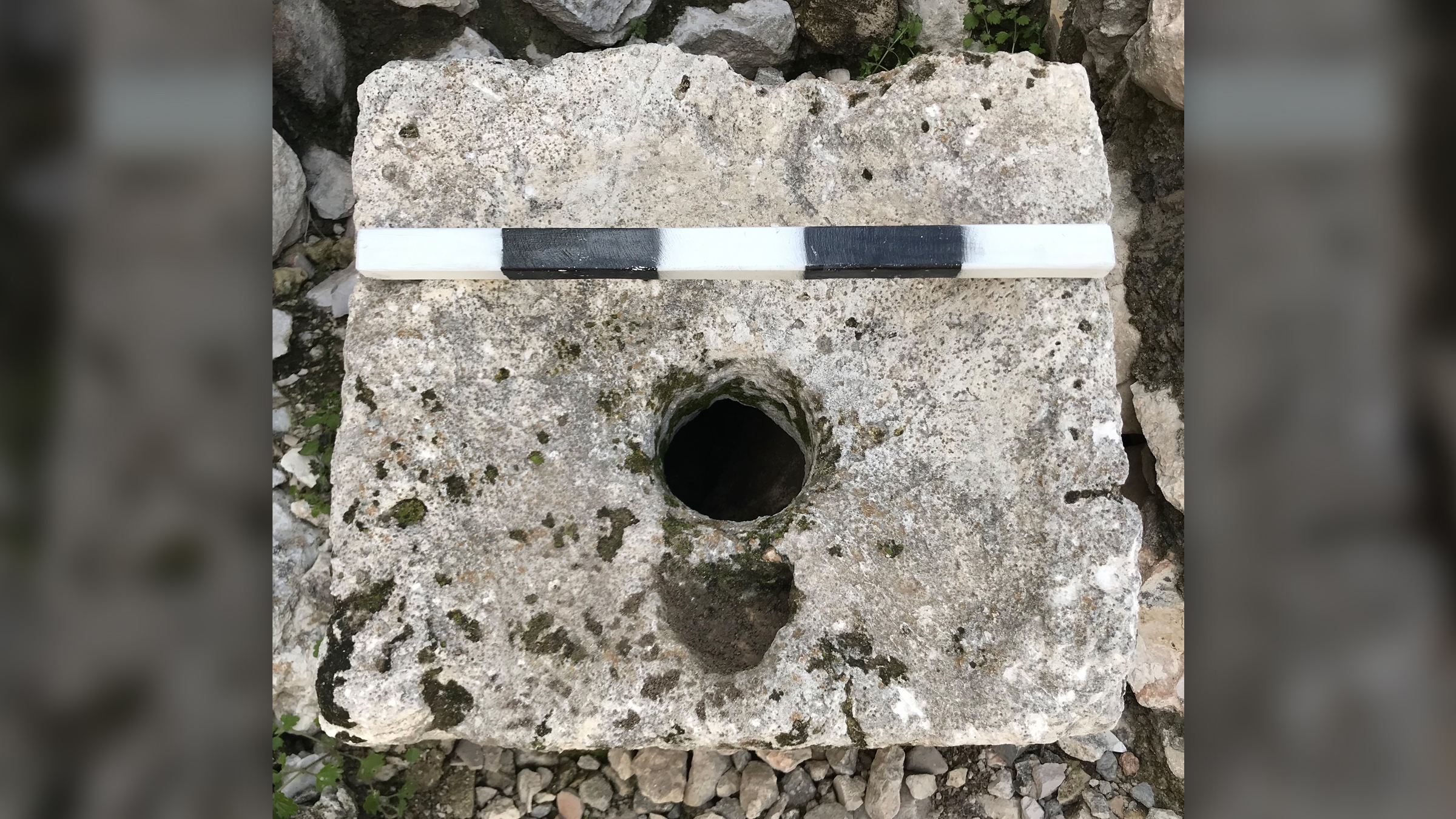By analyzing poop from biblical-era toilets in Jerusalem, archaeologists have discovered the oldest known evidence of a tiny parasite that causes “traveler’s diarrhea,” a new study finds.
This microscopic parasite, the protozoan Giardia duodenalis, can cause dysentery, an intestinal infection that results in severe, bloody diarrhea and is often accompanied by stomach cramps and a fever. The new research, published May 26 in the journal Parasitology, dates the oldest evidence of this protozoan in human feces to more than 2,500 years ago.
The researchers discovered evidence of G. duodenalis under stone toilet seats previously found at two large sites that were likely elite residences dating to the seventh to sixth centuries B.C. The stone blocks had a curved surface for sitting, a large central hole for defecating, and a smaller hole that was possibly for urination, and were situated above a cesspit. Because the ancient toilets were still in their original locations, a unique opportunity arose for specialists to identify microorganisms in the old poop.

Previous research into the cesspits has revealed eggs from whipworms, roundworms, pinworms and tapeworms, suggesting that Iron Age sanitation practices were lacking. But while these eggs are robust and can preserve for thousands of years, it is much more difficult to detect the fragile cysts produced by protozoa.
To investigate, a team of researchers from the University of Cambridge, Tel Aviv University and the Israel Antiquities Authority proved that they could identify the presence of the diarrhea-causing parasite using a technique called ELISA (enzyme-linked immunosorbent assay), which can detect the antigens — substances that trigger human immune responses — made by several different organisms.
Related: A rare 2,700-year-old luxury toilet found in Jerusalem
The researchers took one sample from the cesspit at the House of Ahiel, located just outside the city walls of Jerusalem, and three samples from the cesspit at Armon ha-Natziv, located about 1 mile (1.6 kilometers) south of the city. Using ELISA kits, they detected in the feces samples a unique antigen: a cyst wall protein that is produced and released by G. duodenalis.

G. duodenalis is a tiny, pear-shaped parasite spread through food or water contaminated with the feces of an infected person or animal. The organism disrupts the protective lining of the human gut, allowing it to gain access to the nutrients there. Most people who are infected with G. duodenalis recover quickly without antibiotics. However, because the parasite breaches the gut lining, bacteria and other organisms can enter as well, potentially making a person very sick.
“We cannot tell the number of people infected based on sediment samples from communal latrines,” study lead author Dr. Piers Mitchell, who specializes in paleo-parasite research at the University of Cambridge, told Live Science in an email. “It is possible the toilets may have been used by family and staff, but that is merely a possibility, as no records survive describing that sort of social etiquette.”
The discovery of G. duodenalis in Iron Age toilets represents “the earliest known evidence for G. duodenalis so far identified in a past population anywhere in the world,” according to the study authors, suggesting the “long-term presence of this parasite in the populations of the Near East.”
It is unknown exactly how long G. duodenalis has been giving humans dysentery, but medical texts from Mesopotamia, one of the earliest complex societies, refer to the problem of diarrhea around 3,000 to 4,000 years ago. Additionally, since this symptom is common in environments with overcrowding and premodern sanitation, outbreaks of dysentery may have been common in the Near East as soon as permanent settlements and animal and plant domestication occurred.
“Much more research applying ELISAs to early societies is needed for us to fully understand from which regions of the world each organism originated, and when they spread to new areas due to migrations, trade and military invasions,” the researchers concluded.
Stay connected with us on social media platform for instant update click here to join our Twitter, & Facebook
We are now on Telegram. Click here to join our channel (@TechiUpdate) and stay updated with the latest Technology headlines.
For all the latest For Top Stories News Click Here
